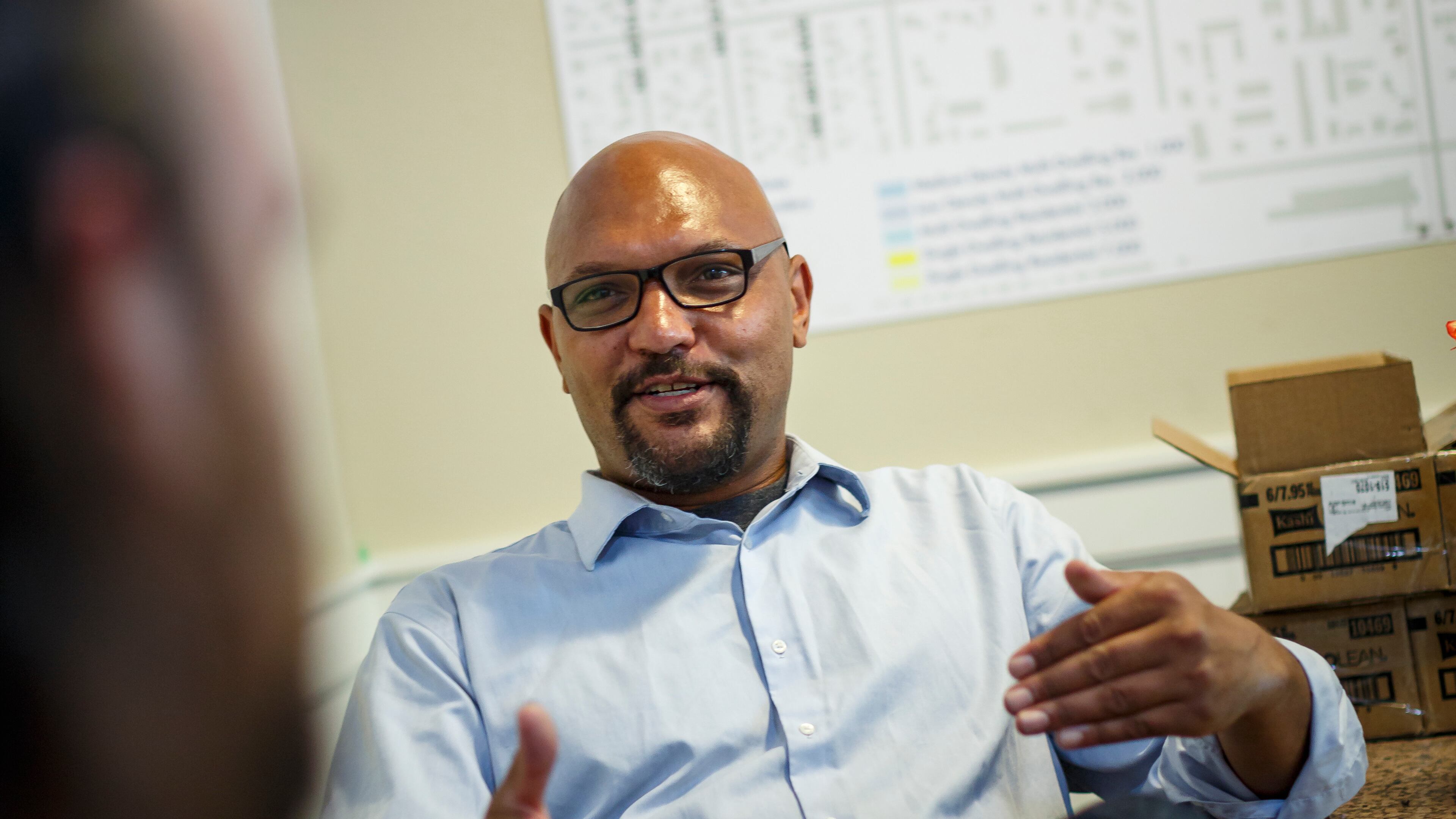This summer, Mingus Mapps was fired from the Portland Office of Community and Civic Life. Now he's looking for a bigger job—by challenging the elected official who runs the bureau.
Mapps, 51, launched his campaign to unseat City Commissioner Chloe Eudaly last week, in the midst of her controversial push to change the way the city solicits involvement from neighborhood associations.
A former political science professor at Brandeis University, Mapps is a critic of that effort. He says he was fired from his city job after refusing to discipline a subordinate whom he thought was blameless. This week, he discussed his insurgent campaign, where he differs from Eudaly, and why it's time for a leadership change.
WW: If you get elected, what are your priorities?
Mingus Mapps: Part of what you're going to get when we switch from Chloe to me is a profoundly different style of government. Clearly, one of the things that we don't have right now is an evidence-based commissioner and a commissioner who will listen. A commissioner who will examine his or her assumptions when challenged. A commissioner who respects the public and a commissioner who respects staff.
Is there a policy point on which you disagree with the commissioner?
Chloe said her No. 1 victory in her first term was that she helped get rent control on the agenda. It's a bad policy. I don't know anyone in Portland who wants to turn our city into San Francisco or New York.
You support infill development. Would you vote for the proposal as it's currently before the City Council?
I'd have to take a closer look at the proposal. In general, density is a good policy. A thing that makes communities vibrant is that they're walkable. It's much easier from an infrastructure point of view. [But] you can have too much density. Think about Burnside on the eastside up to at least 20th. I've lived in that neighborhood for a long time. Two or three years ago, you could just park in that neighborhood. I could park in front of my house. Some of our Portland neighborhoods are becoming a little dysfunctional because we've packed too much into too small of a space.
How would you address the housing crisis?
Chloe talks a lot about inequity. And I think one of the most painful inequities in this city is the difference between the services that are provided in East Portland and the services that are provided in other parts of the city.
The city hasn't built basic infrastructure east of 82nd. I think if we built sidewalks, if we paved roads, if we created more parks and provided adequate police protection, we could shift the center of the city away from downtown out to the borders. We're building downtown up so that it's a jewel box. Meanwhile we're neglecting most of the people who live on the periphery.
On the issue of homelessness, what specific program would you support?
My goal is to end sleeping on our streets and sleeping in our cars. How do we do that? We're going to need more shelters. We're going to need more supportive housing. We're going to need to be more aggressive about keeping people from falling into homelessness.
The city also has done a terrible job of working with neighborhoods around the placement and management of those shelters. That's a piece that I hear and I've seen and I think that we can fix and we should fix.
